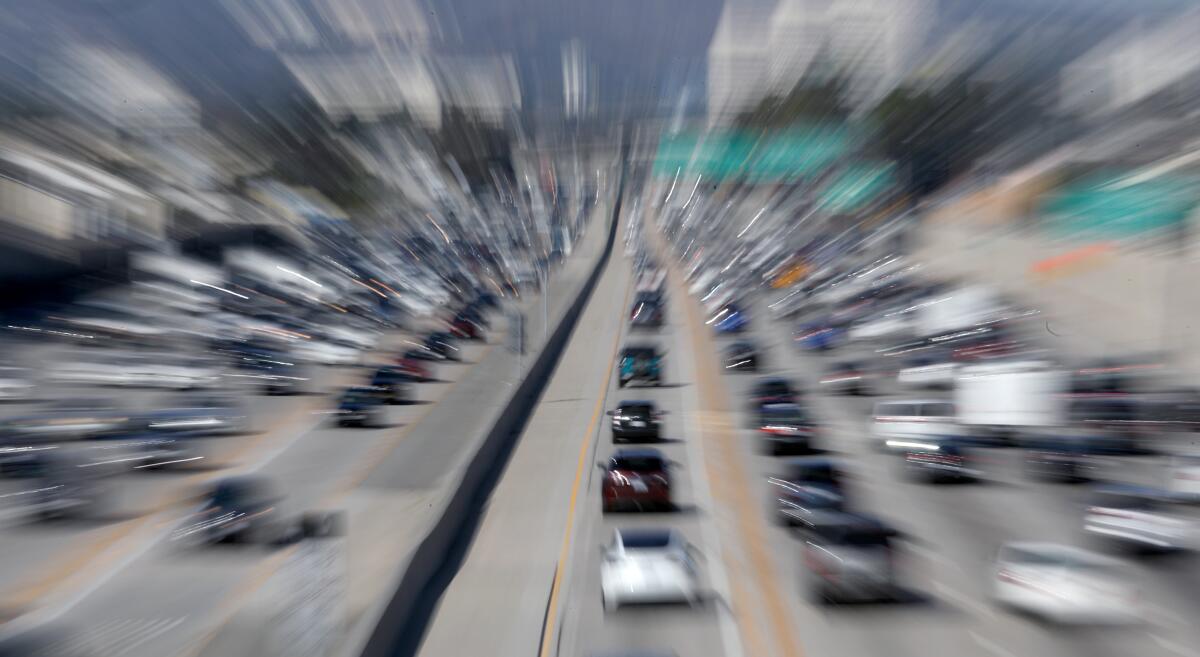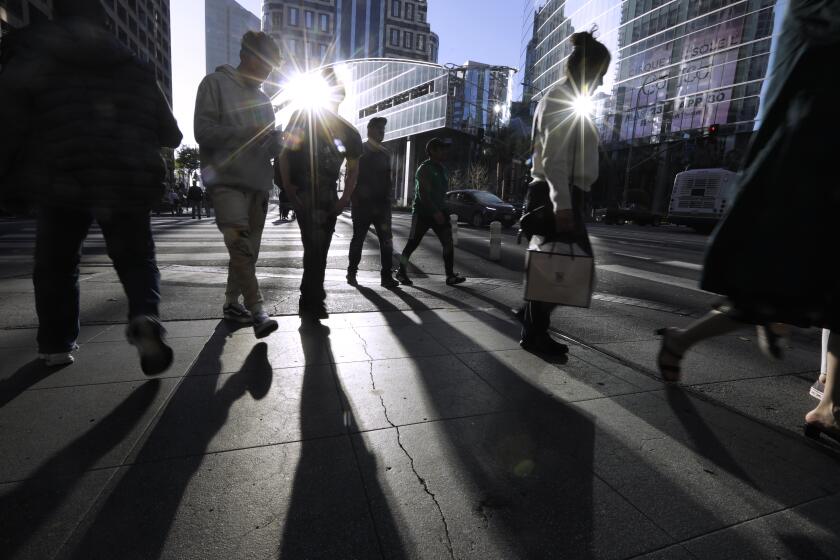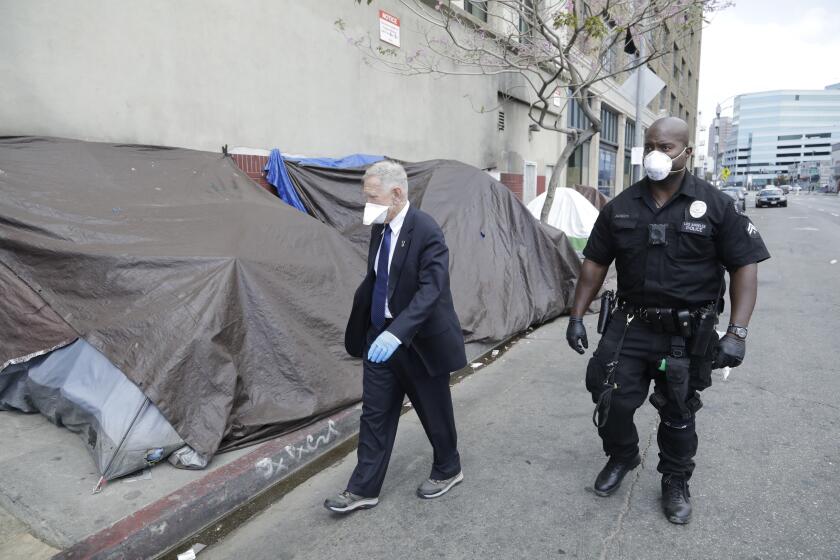The right to blast your horn? Honking is not free speech, judges rule

- Share via
Part of the soundtrack of Los Angeles is the sound of the myriad vehicles that make their way through the city every day — the hum of the engines, the music blaring from the radios and, of course, the honking of horns, often used to convey anger, approval and numerous other emotions.
But according to a ruling by a three-judge panel of the U.S. 9th Circuit Court of Appeals, blaring a horn, whether in frustration when the 405 turns into a parking lot or in support of a group of demonstrators standing along a roadway, is not protected free speech.
The ruling earlier this month stemmed from a lawsuit filed against the California Highway Patrol and the San Diego County Sheriff’s Department by San Diego resident Susan Porter after she was cited in 2017 for misuse of her car horn. She had honked in support of protesters outside the office of Rep. Darrell Issa (R-Bonsall).
Although the ticket was dismissed after the citing officer did not show up in court, Porter filed the suit alleging that the vehicle code statute under which she was cited violates the 1st Amendment.
The statute prohibits the use of a horn except to warn of a safety hazard.
Arcturus, also known as XBB.1.16, has also attracted attention after reports linking it to what has been a rare COVID-19 symptom: pink eye.
“In a multitude of circumstances, drivers routinely sound vehicle horns to express support or approval of parades, protests, rallies, demonstrations, or fundraising or for other expressive purposes such as greeting a relative, friend, or acquaintance,” Porter’s attorneys wrote in the complaint filed in 2018.
Porter feared that she might be cited again if she attempted to honk her car horn in support of other protests or demonstrations, according to the complaint.
“Vehicle Code § 27001 violates the First Amendment because it prohibits numerous uses of a vehicle horn for speech or expression,” Porter’s attorneys wrote.
Porter lost the case but filed an appeal, resulting in Circuit Judge Michelle Friedland’s majority opinion stating that limits can be placed on the use of a horn in the name of public safety.
Friedland rejected the plaintiff’s claim that the statute violates the 1st Amendment by allowing for some expression, like a honk in the event of a driving hazard, but not for all, like a honk at a political protest.
For a second time, a federal judge refuses to sign off on a settlement between L.A. County and a downtown alliance to address the homelessness crisis.
“The relevant distinction Section 27001 makes is not, as Porter suggests, between honks intended to convey warnings and honks intended to convey other messages,” Friedland wrote. “Rather, the law prohibits all driver-initiated horn use except when such use is ‘reasonably necessary to [e]nsure safe operation’ of the vehicle.
“To be sure,” Friedland wrote, “most non-warning honks do not create distractions resulting in accidents, but we discern no plausible means by which California could permit non-distracting honks while prohibiting distracting honks.”
In a dissenting opinion, Circuit Court Judge Marsha Berzon wrote that “there is no evidence in the record ... that such political expressive horn use jeopardizes traffic safety or frustrates noise control. ...
“I would hold that Section 27001 is unconstitutional as applied to political expressive conduct such as Porter’s,” Berzon wrote.
More to Read
Sign up for Essential California
The most important California stories and recommendations in your inbox every morning.
You may occasionally receive promotional content from the Los Angeles Times.













